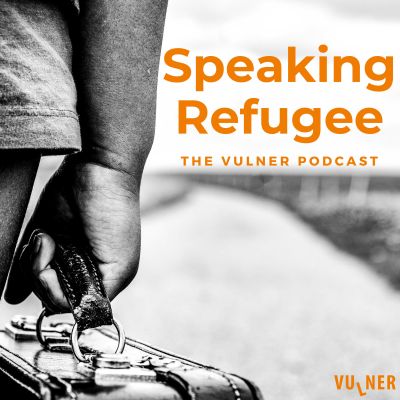A six parts podcast series that explores how refugees experience their „vulnerabilities“ when seeking asylum. In this podcast we want to focus on the individual experiences and feelings, that constitute the „vulnerability“ of refugees and that are often overlooked. - We bring together scientific field work AND the stories of refugees. We wanted to know: How does vulnerability show at the different stages of the migration process? To answer this question we talked to three people from three different countries: You will meet Jameela, who is a refugee from Afghanistan and currently in an accommodation centre in Belgium. Gabriel, who has a refugee history himself and is now working with refugees in Uganda. And we talked to Fatima, a humanitarian worker in the MENA region with Basmeh and Zeitooneh – one of the areas of concentration is Lebanon. This podcast is a part of the VULNER project, a research project that aims to understand the vulnerabilities faced by migrants, to enable decision-makers to better identify positions of vulnerabilities and address them...
https://vulner.podigee.io/
Episode 4: Gender
Gender - next to other factors, such as health or age - plays a central role at different levels, when vulnerabilities are being assessed in reception centers and by social workers. We talked about it with Fatima, Gabriel and Jameela.
Many international treaties have focussed on womens’ rights and the protection of girls, such as the UN Security Council Resolution 1325, which addresses the impact of war on women or the Convention on the Elimination of All Forms of Discrimination against Women (CEDAW), adopted in 1979 by the UN General Assembly. Protecting women's’ rights on a global level has been the United Nations’ aim for several decades now. And it is still important. Until today, gender can play a great role in constituting a person’s vulnerability. Especially in the context of forced migration.
Gender - next to other factors, such as health or age - plays a central role at different levels, when vulnerabilities are being assessed in reception centers and by social workers. And: When we talk about gender, it is very important to talk about cultural discrimination and to look at stereotypes and a very long history of gender oppression. Because historically, gender oppression is shaped by cultural practices, religion, societal norms, conventions, and even laws. Women and girls are seen as the main victims of gender oppression, resulting from a patriarchal socio-economic system that was in play in most societies and cultures worldwide, though the extent of the oppression might vary.
Speaking Refuge - The VULNER Podcast is part of the VULNER project. It is carried out by an international research consortium involving partners from 9 research institutions located in 6 different countries. It is led by Luc Leboeuf from the Max Planck Institute for Social Anthropology. This project has received funding from the European Union‘s Horizon 2020 research and innovation programme under grant agreement No 870845.
